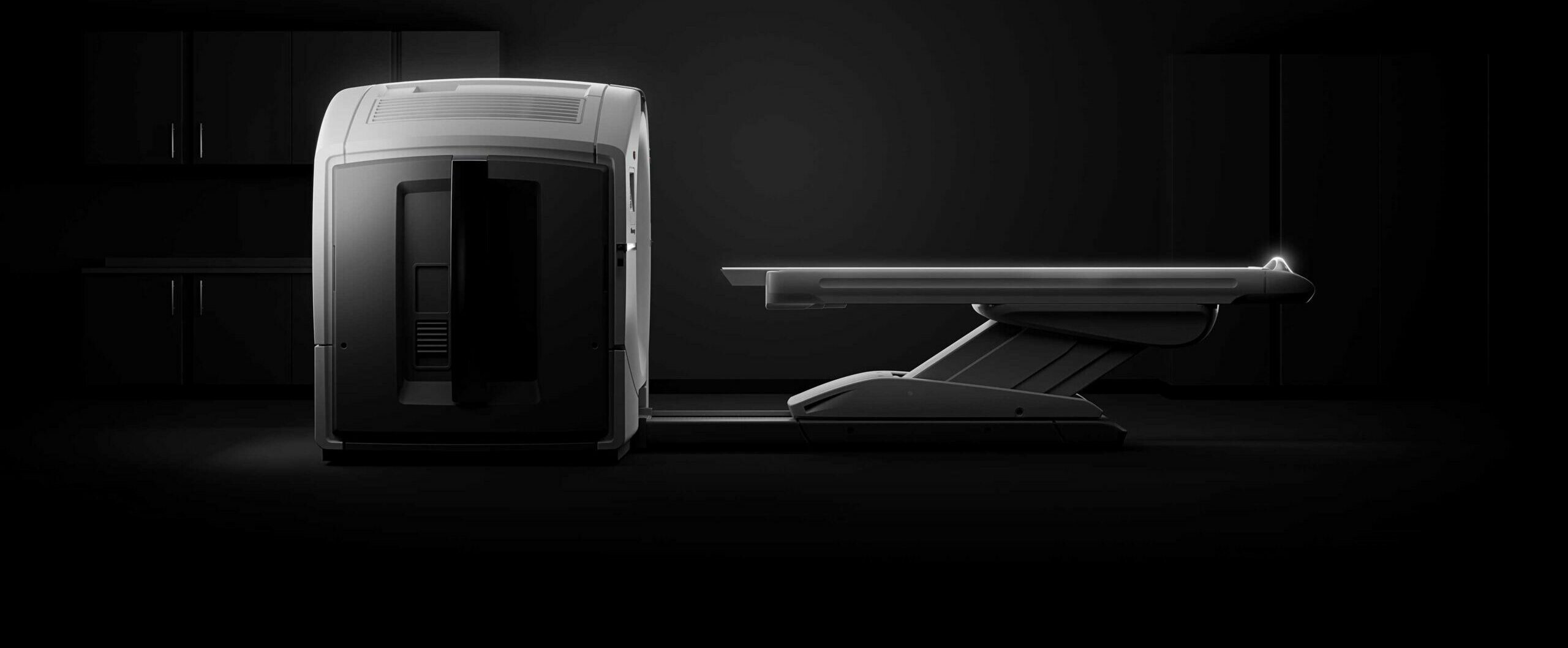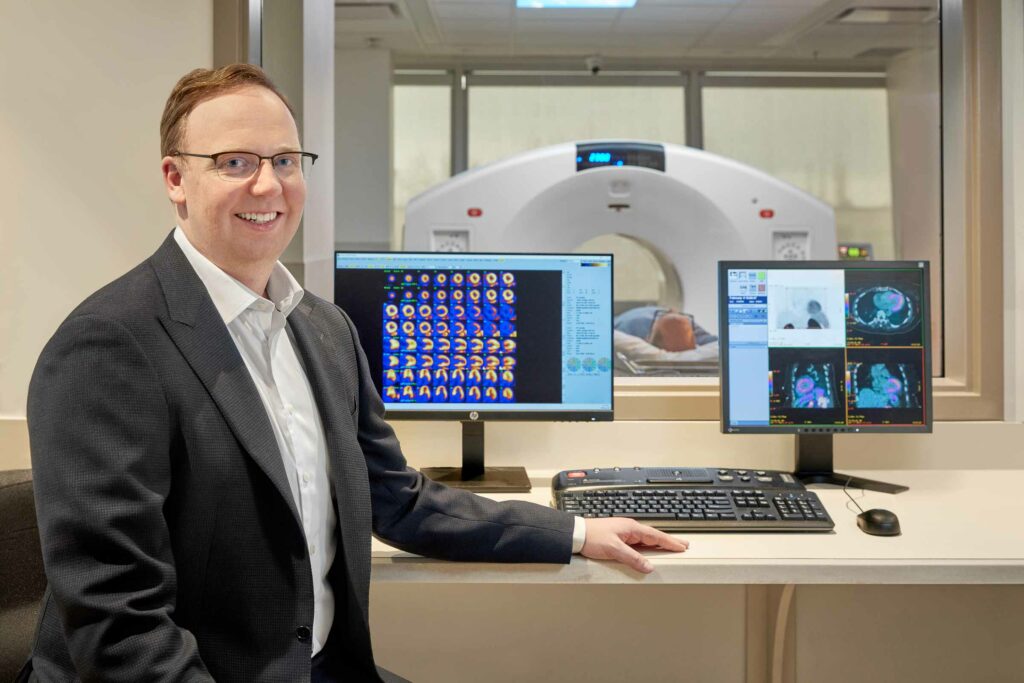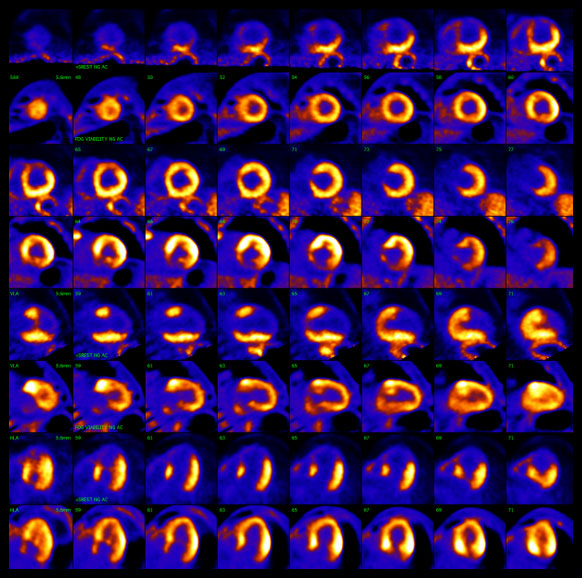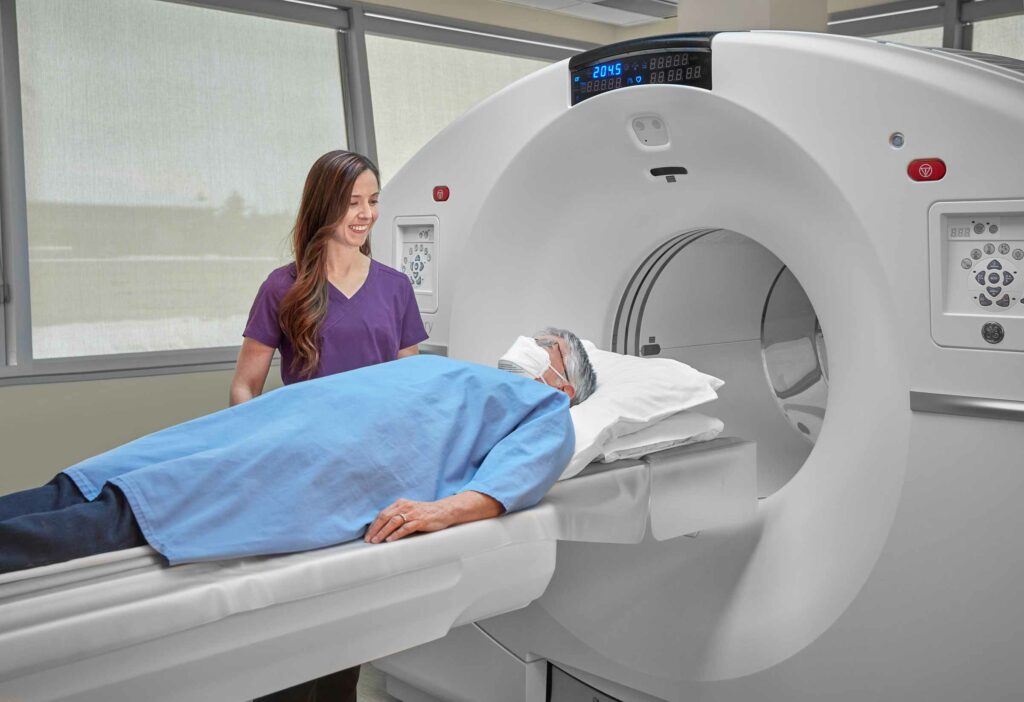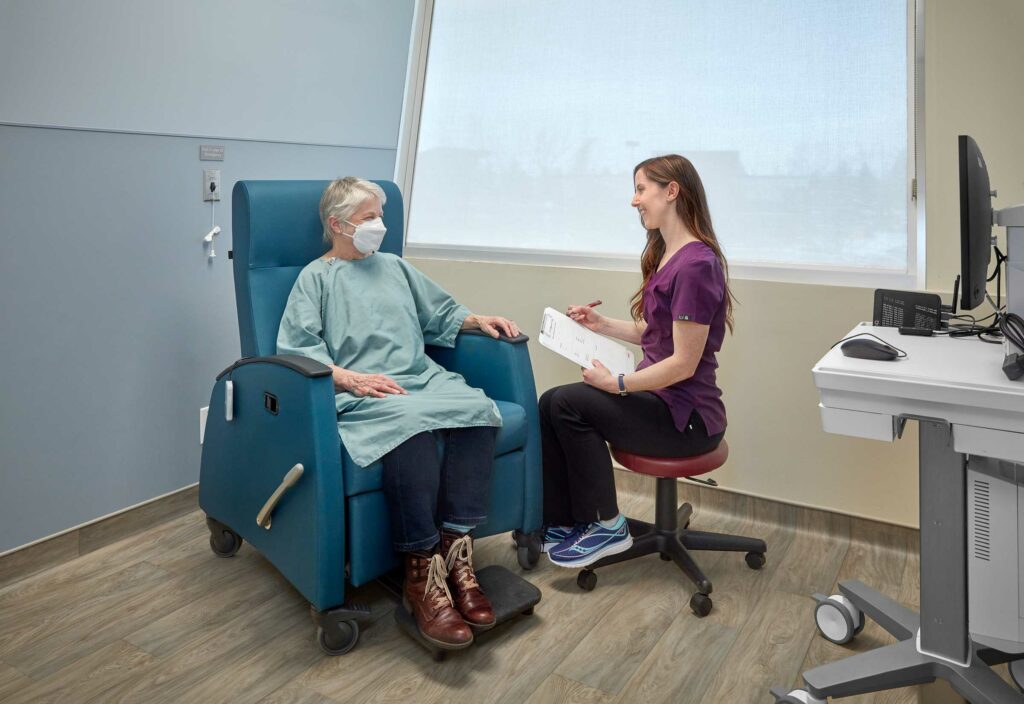Medically reviewed by Dr. Alex Tamm, BMSc, MD (STIR), FRCPC
PET CT for the Heart (Cardiology)
PET CT imaging is frequently used in cardiac applications to help your practitioner assess the health of your heart. At MIC, we offer imaging assessments of cardiac perfusion, cardiac viability, and active cardiac sarcoidosis (inflammation) using our PET CT scanner. Occasionally, cardiac perfusion and viability imaging are ordered and interpreted together as they are complementary exams.
What does a cardiac PET CT scan show?
Cardiac PET CT imaging provides unique information about your heart, depending on the imaging application. Cardiac PET CT scans for myocardial perfusion and viability imaging can provide information related to:
- blood flow through the coronary arteries that supply the heart muscle (myocardium).
- the presence of coronary artery disease (severity and extent).
- damage to the heart muscle from a heart attack or disease.
- estimating the risk of major cardiac events in the future.
- to identify the best treatment for patients (medical therapy and/or revascularization via angiography, surgery, etc.).
- distinguishing hibernating heart muscle that may recover from non-viable tissue.
Cardiac PET CT for sarcoidosis can provide information related to:
- the presence of active inflammation or sarcoidosis within the heart as well as other organs.
- assess therapy response in the setting of cardiac sarcoidosis.
What happens during a cardiac PET CT scan?
During a PET CT scan of the heart, the procedure may differ if you have myocardial perfusion imaging, a viability exam, or a scan to detect cardiac sarcoidosis. Once the exam is completed, you may return to your normal activities immediately after, regardless of the procedure.
PET CT for Myocardial Perfusion Imaging (MPI)
Our team will inject medication and a radiotracer (Rubidium) through your IV. The injection will simulate the stress your heart would experience during regular exercise, like walking on a treadmill.
Our PET CT camera will capture images of blood flow to your heart muscle before the injection (known as “resting images”) and after the injection (known as “stress images”) while you lie on the imaging table. Our team, including a dual-trained MIC physician, will monitor you during the study.
Your healthcare team may refer to this type of cardiac imaging as a Myocardial PET, a PET stress test, or a PET MPI.
PET CT for Cardiac Viability Imaging
Cardiac viability imaging consists of two sessions on the same day. Our team will inject two types of radiotracers (Rubidium and FDG) through your IV and capture two sets of images to compare while you lie on the imaging table.
The first session will measure a baseline resting blood flow (perfusion) to the heart, while the second session will show how different parts of your heart process sugar (glucose). If there is damaged heart muscle from cardiac disease or a heart attack, the dead tissue will not process as much sugar (glucose).
Your healthcare team may refer to this type of cardiac imaging as an FDG cardiac PET scan or a PET viability scan.
PET CT for Sarcoidosis
Cardiac sarcoidosis is a rare inflammatory condition of the heart. During this PET CT scan, our team will inject a radiotracer (FDG) through your IV while you relax in a reclining chair.
After the injection, you must remain in the chair and rest for 30-45 minutes in one of our private patient uptake rooms. It is important that we give the radiotracer enough time to circulate through your body and provide ample uptake time.
Inflammatory cells are typically very metabolically active and will take up more of the radiotracer. Once enough time has passed, our team will use the PET CT scanner to capture images of your heart while you lie on the imaging table. The resulting imaging can potentially assist in diagnosing sarcoidosis and alter treatment decisions.
Your healthcare team may refer to this type of cardiac imaging as a “sarcoid FDG PET.”
How does PET MPI differ from SPECT MPI?
Both PET MPI and SPECT MPI help physicians assess heart muscle.
SPECT MPI, more commonly known as a “MIBI,” is a conventional nuclear medicine exam that uses gamma-camera imaging. SPECT MPI assessments are widely available across the country and are an important tool for assessing heart health.
PET MPI uses an extremely advanced camera and technology to assess heart health. Unfortunately, PET CT imaging is not as widely available in Canada, and given the rising demand for state-of-the-art imaging, patient access can be more limited.
As Dr. Lalonde stated in an Alberta Health Services (AHS) press release, PET MPI is a fantastic alternative for complex cardiac patients where physicians require more information than conventional SPECT MPI (2014).
Some unique advantages of PET CT for MPI include:
- Unique ability to measure (quantify) blood flow to the heart, which ensures the accuracy of the test & test interpretation. This is unique to PET CT.
- Shorter exam times completed within one day (often within 1 hour) versus a typical 2-day test for SPECT MPI.
- Consistent, high-quality images that are less affected by body shape and size.
- Lower radiation dose due to short-lived radiotracers.
Do I have to fast before my cardiac PET CT?
Yes, patients scheduled for a cardiac PET CT must fast before their exam. Fasting means you cannot consume food or drink (except plain water) before your exam. Fasting from food or drink also means:
-NO gum or hard candy.
-NO cough syrup or drops.
-NO flavoured or fruit-infused water.
-NO chocolate and chocolate-flavoured food or drink.
Our central booking team will review specific exam preparations when scheduling appointments – including possible diet modifications for patients with diabetes or insulin pumps. It is very important that patients follow their instructions carefully, as improper preparation can lead to a suboptimal study or, in some cases, having to re-book an exam.
Patients should plan to fast for the following time frames based on their specific cardiac PET CT exam:
Cardiac PET CT for perfusion imaging – DO NOT eat and DO NOT drink for 4 hours prior to the exam.
Cardiac PET CT for cardiac viability – DO NOT eat and DO NOT drink for 8 hours prior to the exam.
Cardiac PET CT for cardiac sarcoidosis – DO NOT eat and DO NOT drink for 12 hours prior to the exam.
